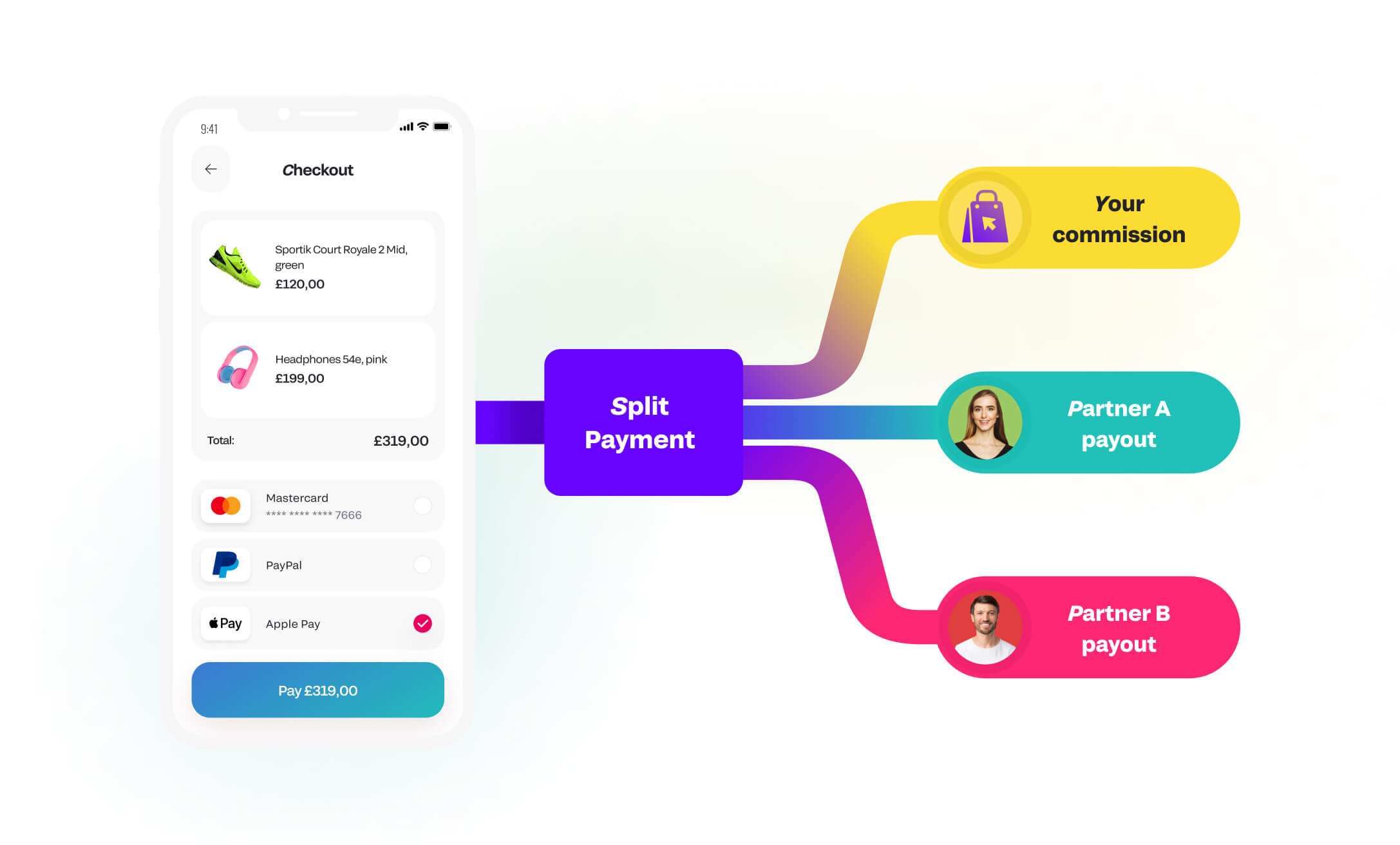If there’s a topic we’ve missed, let us know, and we will be happy to dive into it.
How to start a B2B marketplace: business strategies for starting your own online marketplace

Introduction
In today’s digital economy, many entrepreneurs are asking themselves how to start a b2b marketplace that effectively bridges the gap between providers and end-users. The demand for efficient, transparent, and innovative online platforms has never been higher. This article explores how to start a marketplace by delving into business strategies that help you create a successful marketplace business. It covers everything from market research and planning to technical development and marketing, and it highlights the value of payment solutions such as Fondy for streamlining your financial operations.
Building a strong B2B foundation for marketplace success
Establishing a strong foundation is crucial when launching a b2b marketplace, as it sets the tone for future success. In today’s competitive environment, the b2b sector demands innovation, strategic planning, and agile adaptation. Many aspiring entrepreneurs recognise that a robust b2b approach can help differentiate their platform from others. The integration of advanced technologies, including payment systems and user-friendly interfaces, is key to a successful b2b launch.
Furthermore, understanding the unique dynamics of b2b transactions is essential. A well-executed b2b strategy not only attracts quality vendors but also fosters lasting partnerships. Early-stage research shows that focusing on b2b trends can drive more targeted marketing and improved customer engagement. By aligning your product offerings with the needs of the b2b market, you can build trust and reliability among clients.
Additionally, leveraging innovative b2b tools enables seamless operations and real-time analytics. This data-driven approach empowers businesses to refine their b2b strategies continuously. With a focus on user experience, a well-designed b2b marketplace platform encourages smoother interactions and faster transaction processing. Prioritising transparency and security in every b2b process enhances credibility and customer satisfaction.
Moreover, combining clear pricing structures with scalable infrastructure is a cornerstone of any successful b2b platform. When entrepreneurs concentrate on b2b integration from the onset, they create a resilient foundation for growth. Ultimately, a commitment to excellence in every b2b aspect of the business paves the way for sustained success. This comprehensive focus on b2b innovation, b2b collaboration, and effective execution will empower you to build a competitive and thriving marketplace. By adopting a proactive b2b mindset, you can anticipate market shifts and adapt quickly. Investing in b2b research and development ensures that your marketplace remains competitive. A strong commitment to b2b excellence will drive growth and foster enduring business relationships. Embracing the future of b2b commerce is not just an option, but a necessity for sustainable success.
Understanding B2B marketplace

When you decide to start a marketplace, you are entering a competitive yet rewarding arena. A marketplace, whether b2b or b2c, serves as a platform where buyers and sellers can interact, transact, and build long-term business relationships. The b2b segment, in particular, has its own unique dynamics, offering opportunities to facilitate larger-scale transactions and long-term contracts. This section provides a step-by-step guide on how to start a marketplace platform that meets the needs of both providers and their sellers, ensuring a seamless user experience and robust financial operations.
When you decide to start a marketplace, you are entering a competitive yet rewarding arena. A marketplace, whether b2b or b2c, serves as a platform where buyers and sellers can interact, transact, and build long-term business relationships. The b2b segment, in particular, has its own unique dynamics, offering opportunities to facilitate larger-scale transactions and long-term contracts. Ensuring smooth and reliable business to business payments is crucial for maintaining trust and efficiency in these high-value transactions.
Strategic business planning
Many prospective founders wonder how to start a marketplace startup that can stand out in an increasingly crowded market. One of the first steps is to conduct comprehensive market research. This involves identifying your target audience, analysing competitors, and understanding current trends in the industry. For those looking to start a marketplace company in the UK or launch a marketplace that caters to international clients, regional nuances and local regulations must also be taken into account. By understanding these factors, you can tailor your business model to suit the specific requirements of your market and set clear objectives for your online marketplace.
Planning your business strategy is the foundation of every successful venture. Before you start an online marketplace, you should develop a robust business plan that outlines your value proposition, revenue model, marketing strategy, and growth plan. Whether you are wondering how to start an online marketplace business or how to start a marketplace website, having a clear plan in place is essential. This planning stage is where you decide if your focus will be on a multi vendor approach, particularly effective in the b2b context, or if you will opt for a more niche b2b marketplace model. A well-thought-out strategy will help you navigate the complexities of launching a startup marketplace, ensuring that every decision aligns with your long-term goals.
Platform development and technology
Technology plays a crucial role when you start your own online marketplace. From selecting the right website platform to ensuring seamless integration with various tools, every technical decision can impact the user experience and overall efficiency of your operations. If you are looking at how to start a marketplace website, the technology you choose must be scalable, secure, and user-friendly. It is important to select a platform that not only supports essential features like search functionality, product listings, and user profiles, but also integrates smoothly with advanced payment and payout systems. For example, when you start an online marketplace website, you want to ensure that payment processing is both reliable and flexible.
Integration of payment solutions
This is where payment solutions such as Fondy come into play. Fondy Flow is an all-in-one fintech solution designed for two-sided platforms and b2b marketplaces. It enables you to accept payments, split payments, offer instant or delayed payouts, and manage auto seller onboarding, all within one seamless system. Whether you need to start an online marketplace that accepts card payments, Apple Pay, Google Pay, or local payment methods, Fondy provides multi-currency support and user-friendly checkout options.
Accept payments and split payments

Their hosted checkout is mobile-optimised and designed to deliver an excellent user experience, which is crucial when you are building a b2b marketplace. In addition, Fondy makes it easy to start your own marketplace by offering a transparent pricing model, no-code integration, and comprehensive support via plugins or an API. Split payments allow you to allocate funds between multiple parties with transparency and ease, whether you are processing recurring payments or one-off transactions. These features not only enhance trust between users but also simplify the management of complex financial flows across your platform.
Seller onboarding and payouts

A critical aspect of a thriving online b2b marketplace is ensuring that both sides of the platform, providers and sellers, can transact efficiently. With automated onboarding, background checks, and a user-friendly interface, sellers can quickly join your marketplace and start transacting. In terms of payouts, Fondy offers various methods including Fondy Wallets, direct IBAN transfers, and card payouts, with flexibility in settings for instant or delayed payments. These capabilities streamline seller onboarding and ensure smooth financial operations.
Digital marketing strategies
Digital marketing is another cornerstone when you decide to start a marketplace. Once your website is up and running, the challenge shifts to attracting both buyers and sellers. You need to adopt a comprehensive marketing strategy that leverages search engine optimisation, content marketing, social media campaigns, and paid advertising. By optimising your site for relevant search terms such as how to start a b2b marketplace, how to start a marketplace business, and how to start your own online marketplace, you improve your visibility in search engine results. Content marketing can also play a significant role; by producing valuable and informative content, you can position your marketplace as an authority in your niche. This not only attracts organic traffic but also builds trust among potential users.
One effective way to boost your marketing efforts is by leveraging case studies and success stories. When potential clients see real-world examples of how similar platforms have grown, they are more likely to trust your vision. For instance, if you are aiming to start a b2b marketplace startup that specialises in multi vendor solutions, showcasing how other businesses have successfully navigated the challenges of seller acquisition and retention can provide compelling evidence of your platform’s potential. These stories help underline the feasibility of your project and provide practical insights into the key strategies needed for success.
Optimisation and scaling
Once your marketplace is operational, continuous optimisation is key to long-term success. Running an online marketplace involves constant monitoring and refinement of various processes, including user experience, payment processing, and customer support. Analytical tools and real-time dashboards are indispensable for tracking performance metrics such as conversion rates, transaction volumes, and user engagement. With these insights, you can make data-driven decisions that improve the overall efficiency and profitability of your marketplace. Whether you need to know how to start an online marketplace business or simply want to optimise an existing platform, regular audits and updates ensure that your service remains competitive and user-friendly.
As your platform evolves, scaling your marketplace is a crucial phase in your business journey. As your user base grows, so do the complexities of managing an increasingly diverse range of transactions and interactions. Scaling effectively means not only upgrading your technical infrastructure but also adapting your operational processes to handle higher volumes. For example, if you start an online marketplace that rapidly attracts multi vendor traffic, you might need to invest in better server capabilities, improved security protocols, and more robust customer support systems. This phase often requires a blend of strategic planning, technological upgrades, and a deep understanding of your market dynamics.
Conclusion
Knowing how to start a b2b marketplace involves a blend of strategic planning, technological excellence, and continuous innovation. Whether you are looking to start a marketplace business, how to start a marketplace company in the UK, or how to start a marketplace platform that caters to both providers and sellers, every step must be carefully planned and executed. By focusing on comprehensive market research, robust technical development, and targeted digital marketing, you can build an online marketplace that stands out in today’s competitive environment.
Moreover, leveraging advanced fintech solutions like Fondy can simplify complex financial operations such as accepting payments, splitting payments, and automating seller onboarding. Fondy’s transparent pricing, easy integration options, and versatile payout methods provide the reliability and efficiency required for a thriving b2b marketplace. With features like multi-currency support, mobile-optimised checkouts, and real-time analytics, Fondy enables you to start your own marketplace with confidence and scalability.
If you are ready to take the leap and start an online marketplace that embodies transparency, efficiency, and user-centric design, now is the time to act. Embrace the insights and strategies discussed in this article, and consider exploring Fondy’s comprehensive payment solutions. Their seamless, all-in-one solution simplifies complex financial operations, giving you the freedom to focus on growing your business and achieving long-term success.